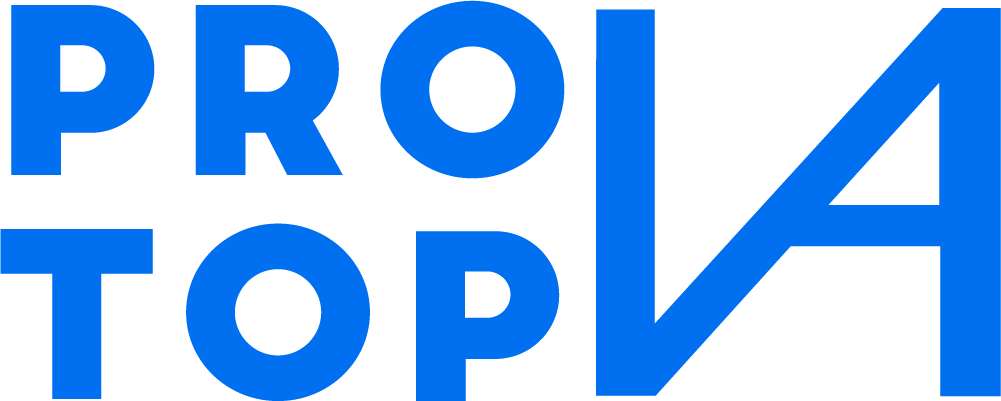Managing a Latin American virtual assistant can be daunting, especially when one does not know where to begin. ProtopVA is here to provide easy-to-follow advice on how best to approach the process of managing an online assistant effectively. Five essential steps for ensuring both the virtual worker and themselves have an efficient, stress-free relationship are provided: Firstly, it is important that clear expectations are set by defining tasks and responsibilities as well as establishing performance metrics for evaluation; secondly utilizing the right tools such as task management software or file sharing solutions will prove beneficial; thirdly regular communication should be maintained with check-ins scheduled weekly or biweekly; fourthly fostering a positive work environment based on trust with collaboration encouraged between all parties involved shall ensure success within this partnership; finally providing training opportunities continuously in order for them remain up to date within their role will further develop their skill sets. With these simple yet effective tips in mind managing a VA should be smooth sailing!
Table of Contents
1. Setting Clear Expectations for Your Remote Assistant
A. Defining Tasks and Responsibilities for your virtual workers
Defining tasks and responsibilities for their virtual assistant in south America is an important step in managing them. It is essential to provide clear instructions on the desired outcome of any task assigned, as well as what they expect from him or her within a given timeframe. Additionally, it can be beneficial to outline how he or she should handle certain scenarios or contingencies, so they are better prepared when faced with difficult decisions while working remotely. Setting expectations early establishes trust between employer and employee and helps create an atmosphere where learning can take place effectively – ultimately resulting in improved performance over time.
B. Establishing Performance Metrics
In terms of managing a Latin American virtual assistant, it is essential to set performance metrics for ProtopVA and its team members. At ProtopVA, they strive to assess performance through quantitative analytics such as task completion speed and customer feedback ratings — thus creating clear expectations of what success looks like from their remote workforce. Metrics also help provide useful insights into where additional training or development may be necessary so that everyone can remain proactive in working towards meeting goals together as a group. As an example, a social media manager virtual assistant could have as a metric posting a number of times per day.
C. Communicating Work Hours and Availability
It is essential to make sure that a Latino virtual assistant has the necessary time and availability to carry out their duties. To prevent any misperceptions concerning when work should be done, it is important for clear instructions or guidelines regarding hours and accessibility to be communicated in advance. This will afford the remote assistant greater freedom over his/her agenda as well. Furthermore, giving regular feedback on progress enables both parties to properly manage their workflow by having a knowledge of how far along assigned projects are.
2. Utilizing the Right Tools for Optimal Virtual Collaboration
Employers can benefit from utilizing ProtopVA’s powerful solutions when it comes to effective virtual collaboration with a remote assistant. They offer task management and organization tools, communication platforms for remote teams, file sharing and document collaboration solutions as well as other services that give employers greater visibility into projects while streamlining team workflow. With access to these essential resources at their fingertips, they are able to create more efficient processes in order to ensure optimal collaborations.
A. Task Management and Organization Tools
As a leader of remote teams, using task management and organization tools is essential for keeping one’s virtual assistant productive and efficient. At ProtopVA, they prioritize utilizing the best platforms to help manage daily tasks from tracking time worked on projects to organizing deadlines or due dates per assignment. This helps them establish performance metrics for their online assistants that are tailored according to their individual skill sets, so everyone can work at an optimal level in order to meet expectations set by the manager. It also allows better communication options with virtual team members by providing various channels like video conferencing or instant messaging along with document collaboration solutions where multiple versions of documents can be maintained easily while allowing secure access control ensuring only authorized personnel have access when needed!
B. Communication Platforms for Remote Teams
It is essential for Latino virtual teams to collaborate effectively so that everyone has access to the right communication platforms. Choosing an appropriate platform for remote virtual communications can have a significant effect on how a team works together and their overall productivity. When selecting the best communication tools, one should consider ease of use, cost-effectiveness, flexibility in terms of integration with other programs or applications as well as scalability features as the business grows. Examining whether video conferencing is necessary – great for more personal conversations but often costly – or if instant messaging systems such as Slack would suffice given its chatroom-like format perfect for communicating rapidly might be beneficial. Picking something that permits all members of a Latin America virtual assistants team to contribute conveniently; being open-minded about new technology options like AI voice assistants or live transcription services could ultimately improve daily operations even further!
C. File Sharing and Document Collaboration Solutions
When it comes to managing remote teams and collaborations efficiently, utilizing the right file-sharing and document collaboration solution is essential. He or she can use tools like Dropbox, Google Docs, and SharePoint which provide easy-to-use interfaces for quick access to digital documents that can be shared and edited by team members in real time. A social media manager virtual assistant could host all the necessary images and graphics in the cloud for free. These solutions also offer security measures such as data encryption protocols that ensure their files remain safe from outside intruders or accidental loss of content due to user error. By streamlining workflows through efficient organization systems and allowing seamless communication between Latin American virtual assistants via video conferencing tools or instant messaging channels – these platforms act as a cornerstone for successful teamwork across multiple locations!
3. Maintaining Regular Communication with Your Online Assistant
Maintaining regular communication with their online assistant is essential for successful collaboration and cultivating a positive remote work environment. Scheduling weekly or bi-weekly check-ins allows them to monitor progress, track task completion, assess performance metrics, provide feedback, and recognize accomplishments. Openness and transparency in communication promote trust between remote teams as issues can be quickly addressed to ensure projects meet deadlines successfully. Promoting an effective virtual team also requires investing in the right tools such as robust task management systems, reliable document sharing solutions, and secure messaging platforms that foster efficient workflow without compromising the security of sensitive data.
A. Scheduling Weekly or Bi-Weekly Check-Ins
It is critical to schedule weekly or bi-weekly check-ins when managing a Latino virtual assistant effectively. Doing so sets expectations and provides a platform for feedback on the tasks being completed. Additionally, these meetings can be used as an opportunity not only to discuss accomplishments but also to help define responsibilities and performance metrics in order to create a clear understanding of roles between both parties involved. Furthermore, these periodic discussions promote trust in each other’s capabilities thus further amplifying collaborative working relationships online.
B. Encouraging Open and Transparent Communication
The key to managing a virtual assistant is the power of open and transparent communication. Establishing clear expectations on tasks, availability, and performance metrics from the start will enable one’s remote assistant to successfully carry out their duties. However, work hours and responsibilities alone are not enough; creating an environment with two-way dialogue will ensure that they stay informed about how well he/she is performing while providing feedback when needed. It is essential to create some time during each week or biweekly check-in session dedicated solely towards discussion in order for potential issues can be addressed promptly as required.
C. Providing Constructive Feedback and Recognition
At ProtopVA, they understand the importance of providing constructive feedback and recognition to their virtual assistant. Recognizing hard work is essential in keeping motivation high, while at the same time, it is important to give helpful criticism when needed so he or she can improve their skills. Constructive feedback should always be delivered in a professional manner that respects both parties involved; this sets clear expectations for success which will help achieve better results over time. Additionally, they set up regular check-ins with the online assistant, so they have an opportunity to discuss any concerns or areas where improvement could be made as well as celebrate successes along the way – small gestures go a long way!
4. Fostering a Positive and Inclusive Remote Work Environment
Creating and maintaining a positive, inclusive environment for remote work is essential to ensure successful collaboration between virtual assistants and their managers. It is key to developing an open and communicative relationship for them to establish trust with the remote assistant. By ensuring that communication channels remain strictly professional while also adding elements of friendliness, it can help foster comfortability within the workplace. Additionally, encouraging collaborative efforts through team-based activities or initiatives helps build camaraderie among colleagues despite being physically separated by distance or time zones. Furthermore, it is important to make sure everyone gets adequate breaks throughout their day; providing opportunities for them to step away from the desk will ultimately lead them back feeling refreshed and motivated – two integral components needed when working productively online!
A. Building Trust and Rapport with Your Virtual Assistant
At ProtopVA, their goal is to foster a positive and inclusive remote work environment that encourages collaboration, team-building and trust between virtual assistant latin America and employers. To build rapport with the online assistant, it is important to make the effort in understanding their strengths and weaknesses from an individual perspective. They should take some time out of each day or week for just them two to talk about any issues they are having or areas where more assistance may be needed – this helps keep up transparency within working relationships while also providing support when needed. Showing appreciation expands beyond words by motivating employees with incentives such as bonuses, rewards tracking systems, etc. which can help continue motivation during slow periods – leading ultimately to stronger relations between both parties down the line!
B. Encouraging Collaboration and Teamwork
Fostering a positive and collaborative remote work environment is key to successful virtual assistant management. To encourage teamwork, mutual respect between all stakeholders must be established — not just with the hired professionals but also within the team itself. Regular communication should be maintained in order to ensure performance metrics are properly set and tasks and responsibilities are clearly understood. Utilizing task organization tools for collaboration as well as a group chat or video conferencing applications can help guide them towards achieving common goals. Additionally, recognizing their accomplishment of work points with competent feedback will give employees greater morale boosts and ultimately result in higher quality output from them over time.
C. Promoting Work-Life Balance and Employee Well-Being
When it comes to virtual team management, providing employees with a healthy work-life balance is an essential part of ensuring both company and individual success. Establishing clear guidelines for their hours and availability will help ensure that tasks are completed on time with minimal stress or disruption. Additionally, employers should strive to create an engaging workplace culture focused on collaboration and teamwork in order to foster positive relationships between managers and their virtual assistants. Communication needs to be open, transparent, and supportive; feedback must be constructive; recognition should always be encouraged when appropriate; and well-being initiatives such as health benefits or flexible scheduling options (if applicable) can help make the most out of each employee’s productivity while also promoting job satisfaction overall.
5. Continuously Developing Your Virtual Assistant’s Skills
No matter the size of their business, ProtopVA can help owners develop and maintain a productive virtual assistant team. By continuously developing the skills of their employees, such as research-based development opportunities or self-directed learning initiatives, they will be able to create an efficient online workplace that maximizes results for both themselves and their remote assistants. Owners should regularly identify areas in which employees need improvement from task management tools to communication platforms; discuss expectations with them regarding hours of availability; set performance metrics; review progress over weekly check-ins sessions; provide feedback based on work delivered – these are all essential steps when it comes down to growing successfully with a proficient group of well informed bilingual virtual professionals who will contribute positively into achieving a common goal: success.
A. Identifying Areas for Improvement and Growth
Identifying areas for improvement and growth in a Latino virtual assistant is essential to ensure the quality of work produced. Through clear expectations, effective use of available tools such as task management/organization software and communication platforms, regular check-ins, positive reinforcement, and employee well being initiatives – one can plan for successful development opportunities that will help performance reach the highest possible standards. It’s important to assess progress continually by providing feedback on recently completed tasks or projects while offering critical guidance when needed so they have an understanding of what success looks like going forward. With continuous training opportunities tailored specifically around their skill set combined with self-directed learning endeavors it will be able to maximize potential across all levels.
B. Providing Training and Development Opportunities
A ProtopVA manager needs to identify areas of improvement or growth potential for their virtual assistant that can be addressed with targeted training resources. This could include online tutorials, webinars, seminars, coaching sessions, and other options depending on the skills required and how often new knowledge must be acquired. Through development plans tailored specifically for individual remote staff members, they will create an environment where both productivity and morale remain high – something all managers strive towards!
C. Encouraging Self-Directed Learning and Professional Development
At ProtopVA, they understand the importance of self-directed learning and professional development for bilingual virtual assistants. They strive to provide their remote staff with training programs that keep their skills up to date and allow them to grow in their positions. In addition, they encourage employees to seek out additional resources on an individual basis, so they can continually develop their knowledge base relevant topics related to job duties. This mindset helps ensure that all virtual members are operating at peak performance while still staying connected with current trends in the industry.



